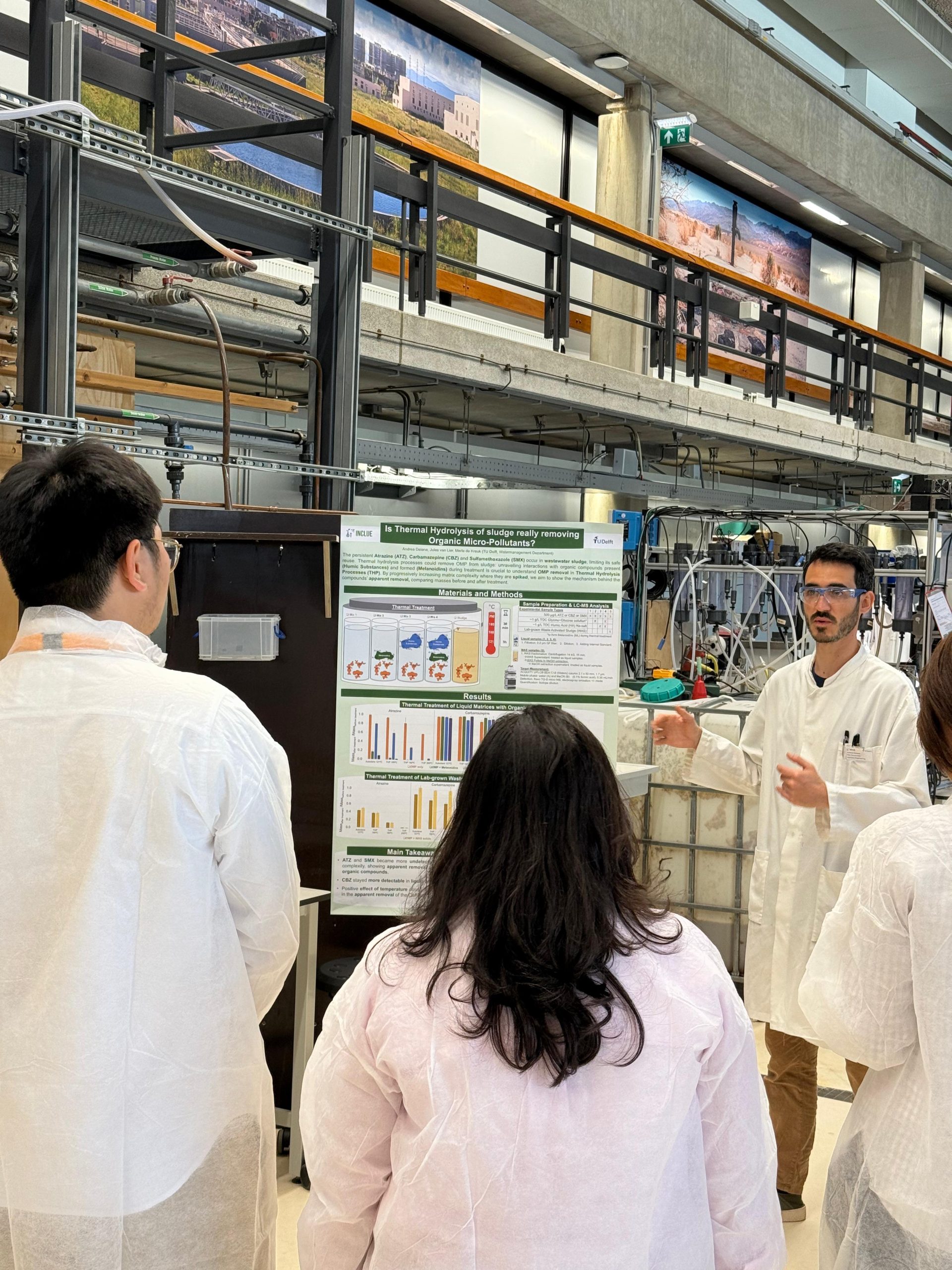On Friday, 20th of June 2025, TU Delft WaterLab hosted a visit as part of the WaterMicro 2025 conference, where INCLUE Doctoral Candidate 4, Andrea, shared insights into the underexplored fate of organic micropollutants during Thermal Hydrolysis of wastewater sludge.
Thermal Hydrolysis is a well-established process developed to produce Class A biosolids, enabling the safe reuse of sludge in agriculture by eliminating pathogens through high-temperature treatment (typically around 180°C for 30 minutes). While the process is widely recognised for its sterilising effect, its impact on organic micropollutants remains less understood.
The presented research showed some initial findings, suggesting some (IN)CLUEs on the final removal of some representative micropollutants under standard thermal hydrolysis conditions.
This raises a critical question: if these compounds are not degraded but somewhat masked, could they leach out again when the treated sludge is used in agriculture or disposed of?
The findings highlight the importance of further investigation into the environmental risks of micropollutant transformation and binding mechanisms during sludge treatment.
The work reflects INCLUE’s broader mission to deepen the research on removing contaminants in sludge management practices, aiming for final application in agriculture.
The WaterMicro 2025 conference brought together experts in microbiology, public health, and water treatment to explore the future of safe water and sanitation—a perfect platform for interdisciplinary discussions like this one.


